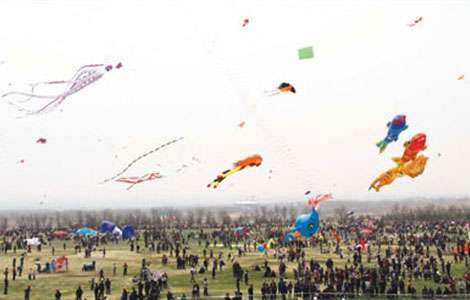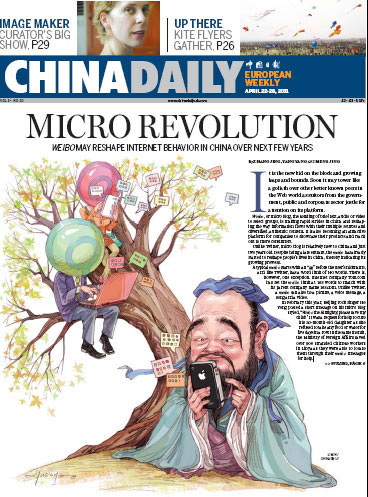Benefits of putting Europe under a microscope
Updated: 2011-04-29 10:50
By Zhou Hong (China Daily European Weekly)
Peering into its economic and social policies over history is vital to China’s future development
China's 30 years of reform and opening-up have allowed the Chinese economy to rapidly develop. It has also brought an unprecedented opportunity for China to study Europe.
Deng Xiaoping, the late Chinese leader, had an open mind in regards to Europe right as China began its opening-up policy. Deng saw a potential middle ground with the continent.
Since then, China's foreign policies have taken on three objectives, largely because of how the nation has studied Europe: The complete reunification and territorial integrity of China, world peace and anti-hegemony as well as China's modernization of socialism.
Several research institutions, including the Institute of European Studies at the Chinese Academy of Social Sciences, have been created by China's efforts to follow the three objectives.
European studies in China used to focus solely on key European countries and were shortsighted: Research on the United Kingdom was mainly about the handover of Hong Kong to the motherland in 1997; research on France has been used to build an increasingly multipolar world order; the research on Germany and other northern European countries have allowed China to learn their economic and social historical experiences.
With economic unification on the horizon for Europe, studies on the continent has become more varied and not simply limited to research on individual member countries or on the process of integration. Research on Europe has encompassed researching areas of the European community, the European Union and its member states.
The unification of Europe will not be a phenomenon of world economic progress but a way of balancing world power, which in turn can promote world peace. In order to evaluate Europe's role and status in the world, China's studies on the European integration has expanded from topics about the economy and trade to areas of politics and foreign affairs.
Chinese scholars favor subjects on the EU's foreign and security policy and the EU's policies on China, subjects that are in line with traditional international relations studies. Several foreign experts said Chinese scholars have been overeager in seeing the EU play a bigger role and that China holds an overly positive outlook on the relationship between China and the EU. These experts believe that China expects the EU to expedite world peace.
Deng Xiaoping said on many occasions in the 1970s that China indeed hopes that Europe will become stronger through unification. He wanted Europe to play more of an active role in the world. This principle also applies to China's research on Europe today.
Civilization emerged out of Europe and its economy today is advanced in many areas. In order to use the knowledge gained from studying Europe to develop China's economy, exhaustive research has been done on different areas in Europe. The incentive to fulfill China's reform and opening-up policy is steering how China studies Europe.
When China began emphasizing a greater need to develop, Chinese scholars began looking at European policies on regional development, finance, environment, energy, employment and social issues. In accordance with the decision-makers and researchers who studied the historical growth patterns of Europe, researchers will use the knowledge gained when making decisions on China's development. For example, researchers studied Europe's policies on social security in the 1980s and China then applied that knowledge to implement its social security policies in the mid-'90s. Ten years later, China's social security policy and implementation have evolved significantly.
Thirty years of studying Europe has achieved results in three areas: It has provided knowledge and information to China; the research on European policy has been helpful for China's development; Chinese European studies have enriched our understanding of important European issues as well as the development of the mankind.
China's studies on Europe center on the continent's various economies, societies, legislatures and foreign policies. But more is needed to study the continent's military, aeronautics and sectors of high technology. After 30 years of research, Europe has been a very important piece to China's development.
The author is an academician with the Chinese Academy of Social Sciences and the head of the Institute of European Studies.
E-paper

Blowing in the wind
High-Flyers from around the world recently traveled to home of the kite for a very special event.
Preview of the coming issue
Image maker
Changing fortunes
Specials

British Royal Wedding
Britain's Prince William and his girlfriend Kate Middleton get married on April 29.

Costly dream
Uninhabited havens up for lease but potential customers face wave of challenges in developing them.

Models gear up car sales
Beauty helps steer buyers as market accelerates.
